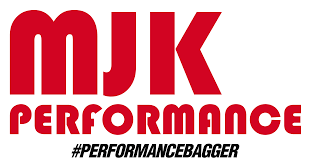Sorting
From A to Z
Deployments found: 1
Up in Alberta, Canada, motorcycle designer Dale Yamada and machinist Phil Butterworth are taking aftermarket parts for Harley-Davidsons to a new level. After they noticed that “there’s nothing cool on the market,” Butterworth says, their MJK Performance machine shop began making “cool, weird, technical, mechanical-looking parts” for Harley enthusiasts.
Using Fusion 360 for CAD and CAM
When Butterworth lies in bed and has more ideas pop into his head, he gets back up and works on designs. This is made much easier because he and Yamada use Fusion 360 on their computers both at home and in the shop, so the designs can be shared instantly.
“It so easy, so user friendly,” Butterworth says, describing Fusion 360 as “hands-down” better than other CAD and CAM programs he’s used over the years. “The design side is so easy, and then to have the CAM side right there—and 5-axis.” The last part is especially important to him, given that 5-axis milling software alone can cost tens of thousands of dollars. “If we had to do this any other way,” he adds, “we just couldn’t afford it.”
The two partners iterate quickly through designs, and Butterworth says he often likes using the branch feature to make five or six designs to try out different concepts before weeding them down. He also relies heavily on the rendering features, which makes it easy for him to “see exactly what something will look like before it’s made.”
In the bigger picture, the software “definitely speeds up the process on our end” by saving them many hours across the steps of design, rendering, and machining. “I can have something from design stage to off the machine in one hour, if I’m working hard,” Butterworth says. “Having everything in one software is perfect.”

